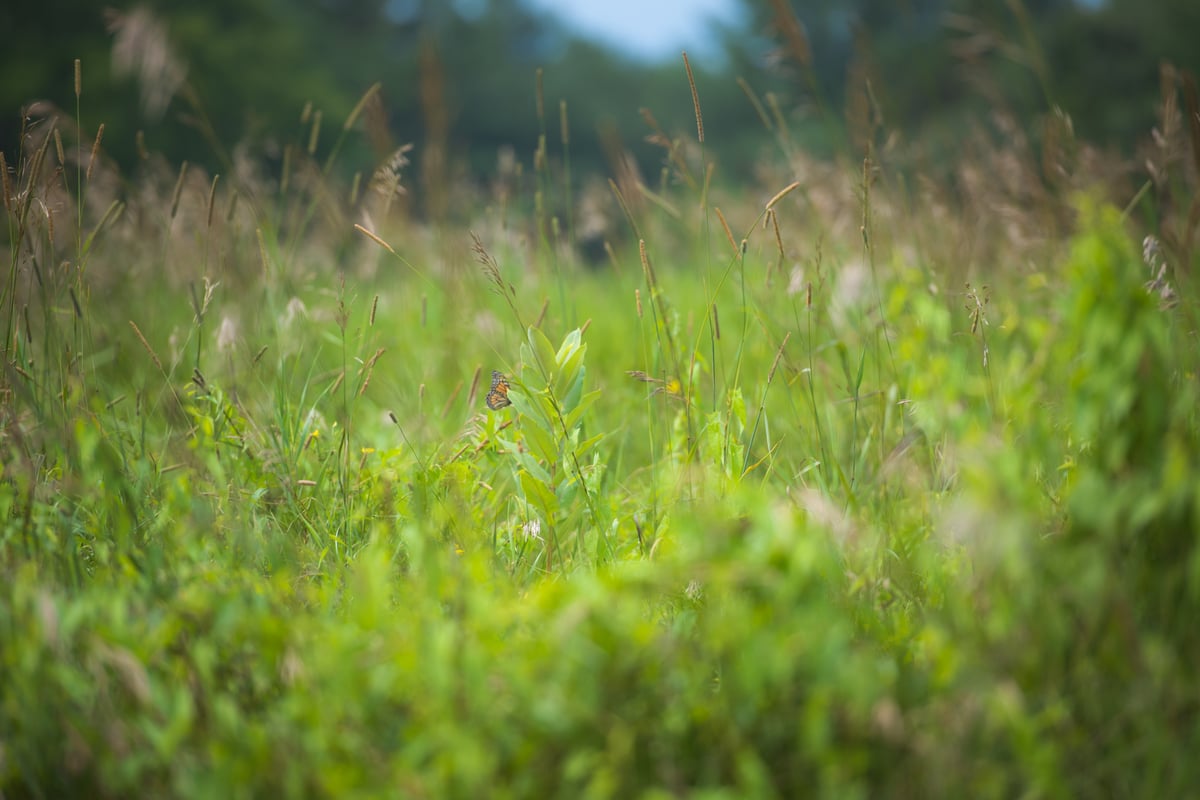Ditch the Lawnmower This Spring
May 04, 2023
Studies show that letting grass grow longer increases the abundance and diversity of native insects, so a change in how we approach mowing helps our native bees, butterflies, and other pollinators get a good start to the season.
Fostering early growth allows flowers to fully bloom, letting native plants like heal-all and white yarrow, and even non-natives like dandelions and common daisies become food sources for these beneficial species. An early boost helps pollinators be successful through their most active time of the year.
No Mow May
The “No Mow May” movement began in the United Kingdom by Plantlife, an organization aimed at making a positive change for wildflowers, plants, and fungi. This initiative has since spread around the world, including to North America. Pollinators across the US face habitat loss, due in part to over-mowing and non-native planting. By letting native plants grow, we can play a vital role in building up the resiliency of native species.
Mowing less is a key approach for the Mass Audubon program we’re calling ’Nature by the Yard’.
For the month of May (or beyond) refrain from mowing, and let your lawn evolve into a pollinator friendly habitat. Can’t commit to the full yard? Choose a smaller section to start!
Not only does mowing less benefit our pollinators, but it also limits the use of gas-powered mowers, cuts down on the time used to maintain your lawn, and reduces water use by encouraging hardier species with deeper root systems to grow.
Other Ways to Help the Pollinators
When you give your lawn a break this spring, enjoy watching the pollinators make their way to your yard to visit the colorful blooms. You can also take action by reducing chemical use, limiting artificial lighting, reducing exotics and invasive species, leaving the leaves in the fall, and encouraging your neighbors to do the same.
Seemingly small changes add up to make a big impact. Read more about how to help our native pollinators, including a list of native and beneficial plants and pollinators you might find in your backyard.
Upcoming Programs on Pollinators
See all programsHomeschool: Ecologists - Spring Flowers
-
Wachusett Meadow Wildlife Sanctuary, Princeton
-
Wednesday, April 9
1:00-3:00pm
Age 11 - 16
Growing Beautiful Native Gardens
-
Greylock Glen, Adams
-
Friday, April 11
10:00am-12:00pm
Adults
Homeschool: Ecologists - Pollinators
-
Wachusett Meadow Wildlife Sanctuary, Princeton
-
Wednesday, April 16
1:00-3:00pm
Age 11 - 16
Stay Connected
Don't miss a beat on all the ways you can get outdoors, celebrate nature, and get involved.



